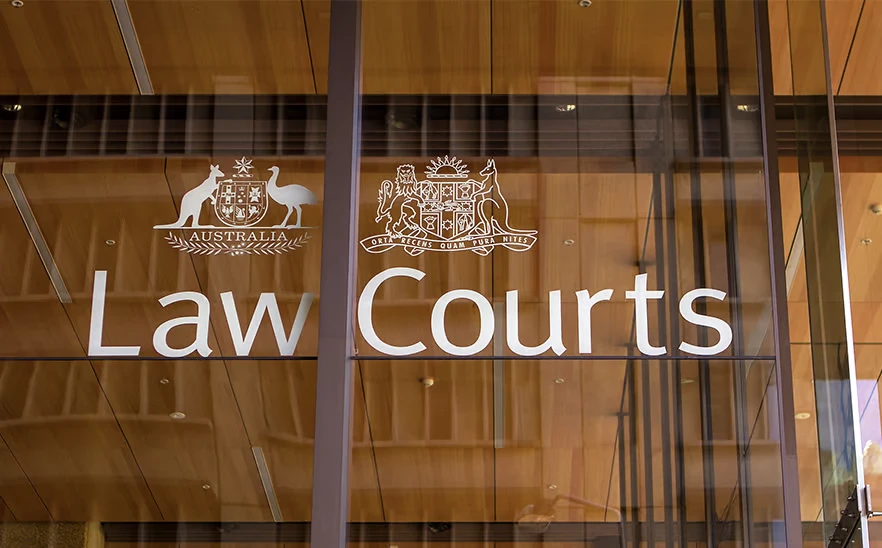Divorce and separation are undoubtedly some of life’s most challenging transitions. While the emotional toll can be overwhelming, navigating the legal aspects doesn’t have to be equally distressing.
Many people don’t understand the Family Law system and equate a significant relationship breakdown with the possibility of lawyers fighting it out in court. Imagining every detail of why a relationship ended up in front of a courtroom of people, with decisions about parenting and financial matters being at the mercy of who has a better lawyer or stronger case… It’s a daunting scenario.
While this occurs in a tiny proportion of matters that go to trial, many pathways can be taken, with the need for no – or very minimal involvement of the courts.
Choosing an avenue that keeps you out of the court system can benefit most people. Not only can it alleviate stress and foster a more amicable resolution – but there are generally substantial savings in terms of legal fees. There is much more room for negotiation in spaces guided by experienced and compassionate lawyers and mediators, too, without the pressure of having your private life placed in a public courtroom.
This article will explore practical and effective strategies for navigating divorce while avoiding a costly and stressful courtroom battle – which is entirely possible in most situations.

Consider Your Options
There are various alternatives for resolving family matters without court. An amicable agreement between parties is the foremost option, fostering mutual understanding and cooperation.
Mediation, which a neutral third party facilitates, promotes open communication and compromise. Many different mediation methods exist, including ‘face-to-face’ and shuttle mediation, where parties are in separate rooms. Mediation can even be facilitated via a video meeting, making it a flexible option for those not wishing to see their ex-partner or parties in different areas.
Collaborative law is another option emphasising joint problem-solving, with each party represented by specially trained lawyers committed to reaching a consensus. This type of law prioritises cooperation over confrontation, preserving relationships and empowering families to shape their outcomes without the adversarial pressure a courtroom setting can bring.
The above methods can be helpful during a divorce or breakup, but also further down the line if any issues arise – usually around parenting matters.
Weigh Up The Costs
Opting for out-of-court resolutions in family matters generally proves more cost-effective and emotionally sustainable than attending court. Court proceedings can incur substantial legal fees, as well as additional professional fees (psychologists, Independent Children’s Lawyers and financial advisers), and standard court-related administrative fees, escalating the financial burden. In contrast, alternative methods such as mediation or collaborative law tend to be more time and cost-efficient, minimising legal expenses.
Beyond the financial aspect, out-of-court resolutions prioritise communication and cooperation, reducing emotional stress and fostering a more amicable atmosphere. Families can navigate challenges with greater flexibility and control, removing the emotional toll associated with prolonged court battles and creating an impartial setting for you and your ex-partner to shape your own futures.
Prioritise Communication
Clear communication is the cornerstone of divorce or separation without court intervention. Start by establishing open lines of dialogue with your former spouse or partner. Speak with your ex-partner about available options, if possible, or have your lawyer extend an invitation to discuss matters non-adversarially.
Let them know you are considering using mediation or collaborative divorce processes where neutral third parties facilitate communication to lessen the stress for everyone. These methods promote understanding, allowing both parties to express their needs and concerns in a controlled and respectful environment.
Seek Professional Guidance
Even with the most amicable breakups, obtaining independent legal and financial advice before signing off on anything is wise. Engaging with legal and financial professionals who specialise in non-adversarial divorce methods is an excellent place to start the property settlement process or making parenting arrangements.
Collaborative lawyers, mediators, and financial advisors can guide you through the complexities of divorce while fostering cooperation. Their expertise can help you make informed decisions and reach mutually beneficial agreements, avoiding court intervention.
Be Prepared To Compromise
When navigating financial or parenting arrangements, there will be times when one or both parties need to compromise. Going into negotiations knowing this allows you to consider which areas where you may be willing to find a happy medium.
Consider writing out your desired outcomes and thinking about where you may be open to compromising before going into negotiations.
Mediation as a Tool
Mediation provides a structured yet flexible environment for divorcing couples to resolve disputes outside of court. A trained mediator facilitates discussions, ensuring both parties have the opportunity to voice their concerns and work towards mutually acceptable solutions. Mediation is often more cost-effective and less time-consuming than litigation, providing a space for constructive problem-solving.
Collaborative Divorce
In a collaborative divorce, each party retains a specially trained lawyer committed to resolving disputes amicably. The process involves joint meetings where both parties and their lawyers work together to reach agreements.
This approach fosters a cooperative atmosphere, allowing for customised solutions that address each party’s and children’s unique needs.
Mindful Parenting Plans
Creating a thoughtful parenting plan is crucial if you have children in the equation. Children’s best interests should be paramount. Take time to consider what is best for your family as a whole.
Work together to establish schedules, responsibilities, and communication guidelines that prioritise the well-being of your children. This approach encourages co-parenting solutions that consider the emotional and logistical needs of everyone involved.
Financial Transparency
Financial disagreements often escalate conflicts in divorce cases. By practising financial transparency, both parties can create a comprehensive and fair division of assets and liabilities. Engaging financial professionals can further ensure that the financial aspects of your divorce are handled equitably.
A lack of transparency can also affect the final outcomes of your matter. If it’s shown at a later stage that one, or both parties haven’t been upfront about their financial situation, the final outcome can be set aside.
Arbitration
Arbitration offers an alternative to traditional court processes. In arbitration, a neutral third party (the Arbitrator) delivers a decision after hearing both sides. While more formal than mediation, arbitration is more cost and time effective than a final court hearing.
Understand That Sometimes, Court May Be Necessary
In family court matters, avoiding court is not always possible. This may be the case if there are instances of high conflict, abuse, or neglect – or if either party fails to provide full disclosure. In cases marked by heightened tensions and disputes, the court can often serve as a crucial forum for resolution. Instances of abuse or neglect may demand immediate legal intervention to safeguard the well-being of family members.
When parties withhold crucial information, judicial intervention can provide a stronger avenue for achieving justice. Acknowledging these circumstances can make it easier to understand that while the court is often a last resort method, it can be the best way forward in some instances, especially for those involved in complex family disputes.
Review and Revise Agreements
Even after reaching agreements, life circumstances may change. What worked at one stage may not work later on, and this often applies to parenting arrangements as children grow and their needs change. Periodically review agreements if necessary and revise what’s in place to accommodate evolving needs. This proactive approach can prevent future conflicts and maintain the cooperative spirit established during the divorce process.
Maintain Emotional Wellness
Divorce can be emotionally taxing, and prioritising your mental health is paramount. Consider engaging with therapists, counsellors, or support groups to help navigate the emotional challenges of divorce. Emotional well-being contributes to a clearer mindset, fostering more effective communication and decision-making.
Consider the Long-Term
When emotions run high, keeping the long-term perspective in mind is essential. It’s a well-documented fact that it’s harder to make good decisions with clarity if strong emotions are involved. It’s very common for one or both parties to feel hurt or angry at the end of a relationship, which can put additional strain on the resolution process.
Focus on the bigger picture and the life you envision post-divorce. This perspective can guide your choices, encouraging compromises that may not seem immediately gratifying but contribute to a smoother transition in the long run.
Navigating divorce without entering a courtroom requires dedication, communication, and a commitment to finding common ground. Couples can dissolve their marriages with grace and compassion by embracing alternative methods and prioritising mutual respect.
Remember, the goal is not just to end a marriage or relationship but to begin a new chapter with a foundation of understanding and cooperation. With the right approach, even a difficult ending can be handled fairly and maturely with the proper guidance.
If you’d like to speak to our team about what options we can offer to help you finalise parenting and financial matters out of court, please get in touch.
Please note that this is general information only. Contact a legal practitioner for expert legal advice that considers your unique personal situation, before making any decisions based on this article.





